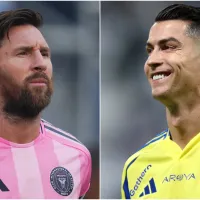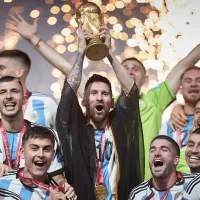
Imagine for a moment that an Englishman had been General Secretary of UEFA for two decades and a member of the FIFA executive committee.
A rather eccentric character, who had a driver transport him around England in a gold-colored Rolls Royce and who and constantly posed Churchill fashion with a large cigar, this English football official had been running UEFA’s affairs out of a luxury apartment in swanky Pall Mall and dined at the city’s finest restaurants, running up massive bills in lap dance clubs on UEFA’s company credit card.
Although he rarely involved himself in English football matters, he was close to the chairman of the English FA. He had been finally forced out after UEFA claimed he had been lining his pockets from the confederation’s funds for 20 years.
Then picture a scenario where that official, after being questioned by police and tax authorities, admitted to taking large cash bribes in connection with the hosting of the 1998 and 2010 World Cups and kickbacks in relation to television deals for five different editions of the European Championships.
Hard to imagine? Well yes. Because such behavior would have immediately prompted the British and European media to investigate his wealth and his business dealings. Because the English FA, embarrassed by the public exposure compatriot’s extravagant flaunting of his wealth would have taken some sort of action. Because UEFA, for all its faults, would not allow their affairs to be run in that manner.
And if, somehow, this man had still survived at the top of UEFA for all those years, his admissions of corruption, would surely have led to a major public inquiry into how this was allowed to happen, the failings of the FA and UEFA and questions about who knew, what, when and how?
And yet, in the United States, which has spent the last week congratulating itself on the DOJ’s ability to indict FIFA officials, there has been silence from the soccer authorities about American Chuck Blazer.
There has been little questioning in the American media of how Blazer, sat in his apartment in the heart of Manhattan and driven around in a black Hummer, was able to enrich himself from the game for years without any scrutiny or consequence. Indeed Blazer was long celebrated and honored in many quarters of the soccer establishment and media.
American talk show hosts and columnists mock international soccer’s seemingly endemic corruption, without appearing to notice that one of the most corrupt of all was one of their own, living it up on a CONCACAF credit card in New York’s most expensive restaurants (and lap dance clubs).
This is not to make the point that the English or Europeans are in some way immune to corruption – they certainly aren’t. Nor that the British media is more diligent or critical than the American media. But it does show that soccer, not one of the top sports in the United States, has not benefitted from the kind of scrutiny and investigation that it receives in countries where it is a national obsession.
Nor is it being suggested that due to that lack of scrutiny, the absence of people holding them to account, the United States Soccer Federation itself has been guilty of the kind of corruption we have seen exposed elsewhere. There is no evidence at all to suggest anything of the kind and nothing to link USSF president Sunil Gulati to any sort of wrongdoing.
What is open to question about the behavior of the USSF and Gulati is the fact that they went along with Blazer in power at CONCACAF for years, working in tandem with Warner, without, publicly at least, raising anything other than an eyebrow from time to time.
SEE MORE — Watch ‘FIFA’s Dirty Secrets’ documentary featuring Jack Warner.
Perhaps soccer leaders in the U.S. should be forgiven for being taken in by Blazer. As well as being an eccentric, he was also a charmer with a sense of humor – in stark contrast to the aggressive, threatening presence of his sidekick Jack Warner. Blazer was a strange man but a very sociable one.
And con-men prosper because they convince people to believe in them – in that I was also among those guilty of being taken-in by the most recent CONCACAF leader to have been exposed – Jeffrey Webb. Webb’s words about reform and transparency, about transforming the administration of the game in North and Central America and the Caribbean were taken at face value by myself and others.
But there have to be broader lessons to be learnt from the Blazer case for soccer in America. An inquiry into the role of Blazer in the game and how he was able to get away within enriching himself at the expense of the sport, would be a start. Likewise the role of Traffic Sports, a major part of the Department of Justice investigation, needs to be looked at closely.
CONCACAF itself needs more than just new leaders – it needs a thorough review of its entire structure and the lack of openness and true transparency that continued throughout the Webb era.
Lessons have to be learnt from the Blazer, Traffic and Webb affairs if North American soccer is to avoid such scandals in the future. Ending corruption and creating a new, accountable and open management of the sport is by no means a simple task of changing the leadership in Zurich – it needs honest assessment and change at every level – confederations and the national associations. USA included.
Editor’s note: Every Thursday, World Soccer Talk featured columnist Simon Evans shares his thoughts and opinions on world soccer topics. You can follow Simon on Twitter at @sgevans. Plus, read Simon’s other columns for World Soccer Talk.














